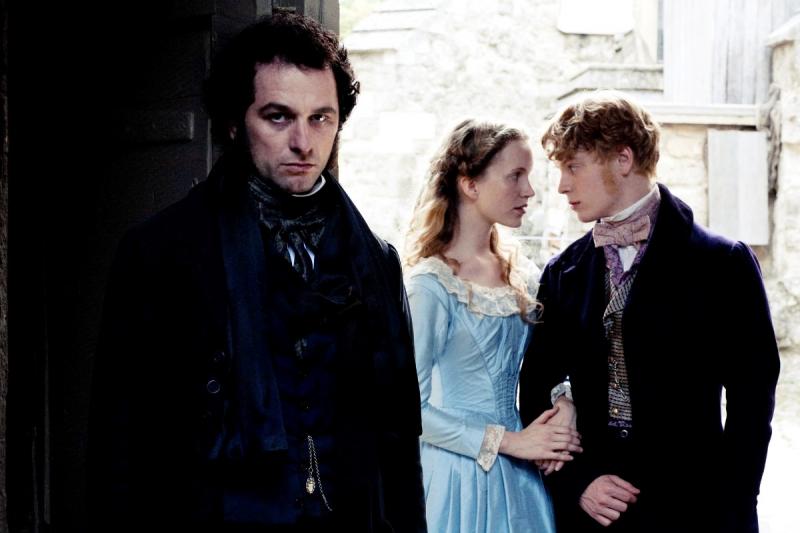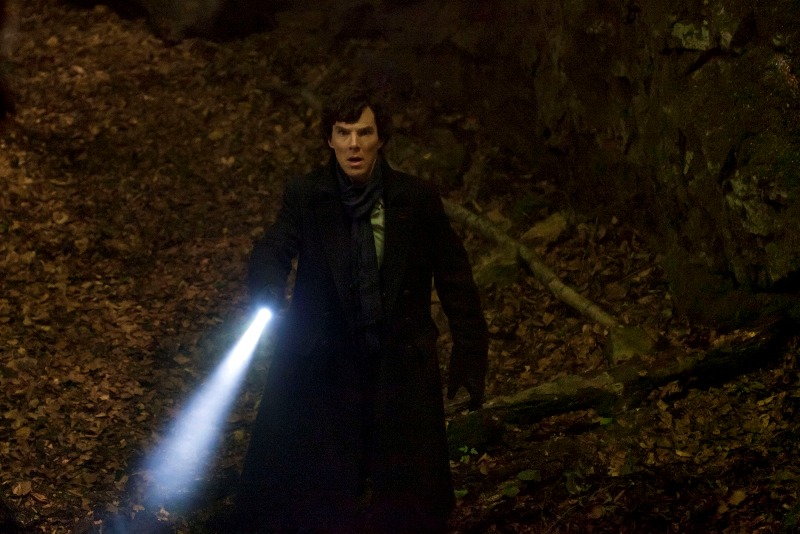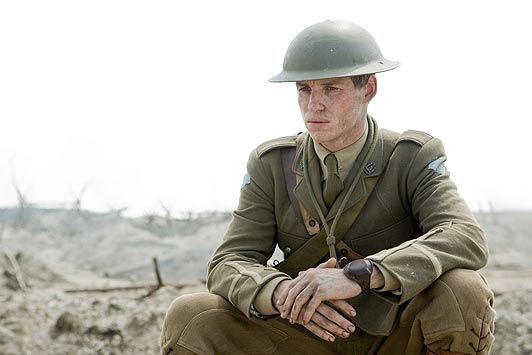Opinion: do we really need more classic novels adapted? | reviews, news & interviews
Opinion: do we really need more classic novels adapted?
Opinion: do we really need more classic novels adapted?
There are no new old titles left. It's time to get inventive

Wanted: classic novel, preferably 19th-century but 18th will do, or early 20th. Anything reeking of period before television acceptable, though preferably not too working class. English if poss. Barnaby Rudge need not apply.
Is there a crisis in the adaptation industry? Is inspiration running dry? This Christmas a new adaptation of Great Expectations became the fifth – yes, the fifth – version of the work put out by the BBC. In a nanosecond or two the movie will follow with Helena Bonham Carter as Miss Havisham and Mike Newell (Four Weddings, Harry Potter 4) at the helm. No matter that Dickens turns 200 this month, poor Pip Pirrip can surely make the journey from the Kentish marshes up to London only so many times before he and we are finally exhausted.
Meanwhile, last autumn the Brontës were also out for yet another jaunt. Jane Eyre this time took the impressive form of Mia Wasikowska, while Wuthering Heights was given the Andrea Arnold treatment. And Sherlock Holmes is currently stalking large screen and small as if employing a body double. Not that you'd mistake Guy Ritchie's chop-socky version and the BBC reinvention starring Benedict Cumberbatch (pictured below in The Hounds of Baskerville).
 For the most part, the classic novels of English literature keep coming round again and again and, although there are a lot of them, you do wonder at the extra expense of making a new version of a well-known story. Couldn’t they just show the last one? The situation has grown little short of desperate. It’s not unlike those dire warnings of the North Sea oil running out. Film and, especially, television have always relied on plucking much-loved tomes from the library of classic fiction. In recent years, though, they have plucked a little too greedily. Even if you allow a 20-year moratorium before novels can be adapted again, thanks to Merchant Ivory, Andrew Davies and ITV’s discovery that their viewers don’t just like to watch grumpy cops reel in and bang up serial killers, stocks are now ominously low.
For the most part, the classic novels of English literature keep coming round again and again and, although there are a lot of them, you do wonder at the extra expense of making a new version of a well-known story. Couldn’t they just show the last one? The situation has grown little short of desperate. It’s not unlike those dire warnings of the North Sea oil running out. Film and, especially, television have always relied on plucking much-loved tomes from the library of classic fiction. In recent years, though, they have plucked a little too greedily. Even if you allow a 20-year moratorium before novels can be adapted again, thanks to Merchant Ivory, Andrew Davies and ITV’s discovery that their viewers don’t just like to watch grumpy cops reel in and bang up serial killers, stocks are now ominously low.
Think of the classic adaptations as a set of Panini stickers you collect in an album. The Austen page is now full, twice. EM Forster’s page has been for ages. The Hardys have been collected, if not always very well and not including all the ones nobody reads. The one decent Thackeray has gone, on TV and on film. The better George Eliots have all been done. (Anyone for the unreadable Romola in six parts? Thought not.) Even Joseph Conrad has been busily adapted in recent times, although all that the screen versions of Nostromo and The Secret Agent proved was that he is unadaptable. There’s not much Henry James still worth doing and there is no collectible Wilkie Collins left. Mrs Gaskell has been mined to exhaustion. Meanwhile, the most filmable novels of the 18th century – Tom Jones, Gulliver’s Travels, Clarissa and Moll Flanders – have all been adapted and won’t be again soon.
In recent years some creative minds have grown inventive. Jane Austen’s perpetual popularity has proved so overwhelming that every novel has been done twice since that lovely BBC Persuasion directed by Roger Michell kicked things off in 1995. Pride and Prejudice has been done for TV, for film, for TV again in the form of Lost in Austen and for film with a Bollywood spin in Bride and Prejudice. The novels of Sarah Waters have given Davies and others a different way of rummaging in history’s drawers. And Downton Abbey is, of course, a costume drama awaiting a cash-in novelisation. Thanks to Posy Simmonds's graphic-novel version of Far from the Madding Crowd, they've taken to updating Hardy.
 The more urgent news is that Sebastian Faulks's bestselling World War One novel Birdsong, having just been done on stage by Trevor Nunn, has finally made it to the screen with Eddie Redmayne (pictured left) in the lead and Clémence Poésy (who played Fleur Delacour in Harry Potter). It is yet another cinematic gig for Abi Morgan after Shame and The Iron Lady. The scenes from the trenches may well look a little more visceral than Downton's. It's also pleasant to note that The Mystery of Edwin Drood is putting in a rare appearance on television this week. It's a more intriguing gig for a scriptwriter than simply banging out yet another variation on a familiar story. No matter that the novelist's latest biographer Claire Tomalin is bracingly frank about the novel's shortcomings, Dickens's final and unfinished novel has been completed on this occasion by Gwyneth Hughes.
The more urgent news is that Sebastian Faulks's bestselling World War One novel Birdsong, having just been done on stage by Trevor Nunn, has finally made it to the screen with Eddie Redmayne (pictured left) in the lead and Clémence Poésy (who played Fleur Delacour in Harry Potter). It is yet another cinematic gig for Abi Morgan after Shame and The Iron Lady. The scenes from the trenches may well look a little more visceral than Downton's. It's also pleasant to note that The Mystery of Edwin Drood is putting in a rare appearance on television this week. It's a more intriguing gig for a scriptwriter than simply banging out yet another variation on a familiar story. No matter that the novelist's latest biographer Claire Tomalin is bracingly frank about the novel's shortcomings, Dickens's final and unfinished novel has been completed on this occasion by Gwyneth Hughes.
But the question still remains. Where do we go from here, apart from over the same old ground, or into the poxy fake past of Ken Follett? Has poetry been considered? Has Andrew Davies thought of wrestling Byron’s unfinished Don Juan onto the screen? You can picture a luscious if low-budget BBC Four account of Tennyson’s In Memoriam, and couldn’t someone commission Tim Burton to bring off a massive international co-production Spenser’s The Faerie Queene? There’s a bit in the third canto where two completely naked nymphs with long blonde locks are washing themselves in a river. That may come up reasonably well on screen. In the meantime, here are a few suggestions for the commissioning apparatchiks:
- This Side of Paradise: Scott Fitzgerald’s debut bustles with beautiful young Princetonians being elegant and witty. Downside: too damn smug for its own good.
- The Mysteries of Udolpho: Anne Radcliffe’s Gothic chiller, big on rugged Italian landscape and haunted castles. Downside: may need a feminist reboot to get the green light.
- La Terre: Zola’s muddy epic about peasants squabbling over land rights is perfect for television. Downside: suicidally depressing.
- New Grub Street: George Gissing’s timeless portrait of the struggling hack, a Blairite tale of vacuity triumphant. Downside: it’s about journalists.
- The Good Soldier Šveyk: Jaroslav Hašek’s hilarious WWI satire about the little man pitting his witlessness against the system. Offers ideal mix of big military canvas and gags. Downside: no female lead.
- Finnegans Wake. Joyce's 17-year suicide note. Some readers who started it on publication in 1939 are now nearing the end. Downside: how long have you got?
Let us know if you've got a better idea.
- The Mystery of Edwin Drood begins on BBC Two on Tuesday, 10 January at 9pm
- Birdsong is on BBC One later this year
- Great Expectations opens in cinemas later this year
Share this article
Add comment
The future of Arts Journalism
You can stop theartsdesk.com closing!
We urgently need financing to survive. Our fundraising drive has thus far raised £49,000 but we need to reach £100,000 or we will be forced to close. Please contribute here: https://gofund.me/c3f6033d
And if you can forward this information to anyone who might assist, we’d be grateful.

Subscribe to theartsdesk.com
Thank you for continuing to read our work on theartsdesk.com. For unlimited access to every article in its entirety, including our archive of more than 15,000 pieces, we're asking for £5 per month or £40 per year. We feel it's a very good deal, and hope you do too.
To take a subscription now simply click here.
And if you're looking for that extra gift for a friend or family member, why not treat them to a theartsdesk.com gift subscription?

Comments
The Way We Live Now by
Great idea, Anna, except that
Great idea, Anna, except that the BBC did an excellent version in 2001, adapted inevitably by Andrew Davies and starring Matthew Macfadyen, David Suchet, Shirley Henderson, Douglas Hodge and Anne-Marie Duff. Trollope was also done in The Barchester Chronicles in 1982. Maybe it's time to have another go at them.
Really? Totally missed that -
Hasn't it been done? I seem
I'd love to see an adaptation
I agree, there was a
Surely it's time to go back
I'd like to see any of the
I'm working with a couple
Parts of Byron's "Don Juan"
I meant to add, or else to
Trollope, The Way We Live
Well of Loneliness?
Steampunk E.T.A. Hoffmann,
I'd love to see Mary Barton
I agree on 'Anna of the Five
Ford Madox Ford, The Good